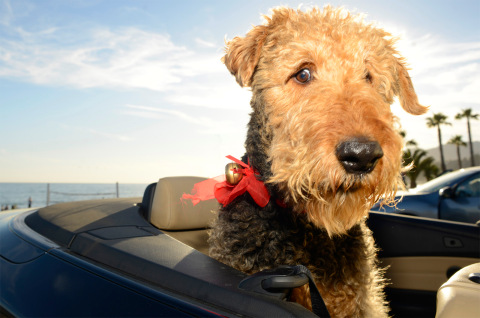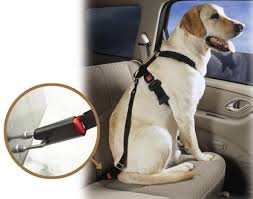8 Tips To Prevent Motion Sickness In Dogs

To most dogs, a car ride is the best thing since that last nibble of steak.
But, for a dog that gets motion sickness, even a short ride becomes stressful…sometimes resulting in a disgusting mess for the owner to clean. But never fear, these 8 tips will help you "ride" through motion sickness with little difficulty. So roll down your window, and enjoy the fresh air.
First Things First….
Usually, dogs will grow out of motion sickness. As puppies, the structures that control balance have not completely developed. This developmental delay can cause your puppy to get sick when riding. If your puppy gets motion sickness every time he travels, he may begin associating a car ride with a stressful event that causes unwanted sensations. If this is the case, you should discuss this with your veterinarian right away. Stress can also add to motion sickness; if an older dog rides in a car only to go to the veterinarian the negative sensations associated with travel can be more pronounced. If a dog continues to present with motion sickness symptoms even after several car rides, it's probably a good idea to consult a veterinarian about treatment for motion sickness.
What Are The Signs Of Motion Sickness
Vomiting isn't the only sign your dog suffers from motion sickness. Other signs include:
- Listlessness
- Uneasiness
- Yawning or panting
- Whining
- Excessive drooling
- Vomiting
- Fear of cars
8 Tips That Could Help Prevent Motion Sickness
 Have your dog face forward while traveling. Make sure you use a specifically designed canine seatbelt. (If you buckle your dog into the front passenger seat, PLEASE dis-engage the passenger airbag and move the passenger seat as far back as it will go).
Have your dog face forward while traveling. Make sure you use a specifically designed canine seatbelt. (If you buckle your dog into the front passenger seat, PLEASE dis-engage the passenger airbag and move the passenger seat as far back as it will go).- Lower car windows a few inches to equalize the inside and outside air pressures.
- Keep the vehicle cool.
- Limit your dog's food and water consumption before travel.
- Give your dog a one- to- two-week break between car rides.
- Take short car rides to places your dog enjoys.
- Spend time with your dog in the car without turning on the engine.
- Take short rides and provide your dog a treat when you get back home.
If your dog doesn't grow out of motion sickness and if the above 8 TIPS do not work, it might be a good idea to consult your veterinarian for pharmaceutical options.

